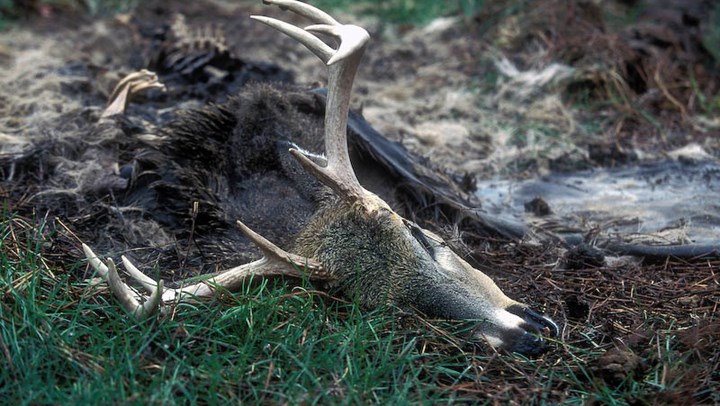
by Michael G. Sabbeth - Wednesday, November 9, 2016

In my article, “If Anti-Hunters Had Compassion, They’d Be Hunters,” I showed how hunters have more compassion for animals than anti-hunters, who display feelings of moral superiority that are unsupported by the evidence. Anti-hunters unceasingly attack hunters’ motives, condemning them for trying to get a “trophy” (a vague term) or for what they call “bloodlust.” “Why kill those beautiful animals?” they ask. So it is certainly fair and appropriate to evaluate the morality and efficacy of the anti-hunters’ policies as well as the motives and the moral character of the anti-hunter.
Consider this statement by psychologist Carl Gustav Jung: “Every form of addiction is bad, no matter whether the narcotic be alcohol or morphine or idealism.” Jung asserts that idealism—including caring—can become a disease.
No law, no matter the intention, can override the most fundamental law of economics: Give something value and it will be protected; eliminate its value and it will be exterminated. That law’s reality may be unpleasant, but it is as immutable as gravity. Anyone who asserts otherwise engages in a fatal abstraction. Translation: Ignore this law and animals die.
Animals Die without Hunting
Animals die in places where hunting is banned. In Africa, for example, when lion hunting is banned, ranchers can no longer feed these animals. They die. Not only do they die, they die hideous deaths from disease, predation, starvation and dehydration. Death from hunting, in comparison, is more humane and moral. As concession blocks in Tanzania close down, lions and leopards die. Paraphrasing Winston Churchill’s words about Great Britain’s appeasement of Hitler, “Governments have chosen animal protection over conservation and have gotten neither.”
Here’s the point, which is difficult to absorb and explain. Anti-hunters, groups such as the Humane Society of the United States, European bureaucrats and so on recognize this. That’s the horror of it all. They know but they don’t care. Why not? Because they are committed to an ideology—a pathologically lethal ideology—that values human narcissism and vanity over animal welfare. And it is lubricated by money.
Much of the anti-hunting attacks illustrate a morally defective character. The human actions that kill animals are many and varied. Bribery, corruption, incompetence and the lust for power and money are easy to understand. But the perversion of altruism—of doing good—is more difficult to grasp and accept.
In her book, “Cold Blooded Kindness,” psychologist Barbara Oakley writes, "During the twentieth century, tens of millions [of] individuals were killed under despotic regimes that rose to power through appeals to altruism."
A psychological process Oakley terms “empathic distress” then can lead to a pathological altruism as a means of relieving one’s own distress by helping—or giving the appearance of helping—others, including animals. A consequence is, and this is a key point, that the need to feel good is so strong that it subverts the moral discipline to evaluate whether any good is actually achieved. No dispassionate analysis is made of their so-called doing good. Self-criticism does not exist. Reality becomes an annoyance. Feeling good becomes more important than doing good. Compassion becomes weaponized: The anti-hunter not only presents himself as more caring but as a better person!
Oakley writes: “Pathologies of altruism and empathy not only underlie health issues, but also a disparate slew of humankind’s most troubled features, including genocide, suicide-bombing, self-righteous political partisanship and ineffective philanthropic and social programs that ultimately worsen the situations they are meant to aid.”
To evaluate the moral deficiency of the strident anti-hunter, focus on consequences, not pieties. These insights help to evaluate the morality of anti-hunters.
Editor’s Note: Michael G. Sabbeth is a lawyer in Denver, CO, who lectures regularly on ethics and rhetoric. The author of “The Good, The Bad and The Difference: How to Talk with Children about Values,” he is currently working on the book “No More Apologizing! Arguments to Defend and Advance Hunting and the Shooting Sports.”
E-mail your comments/questions about this site to:
[email protected]
